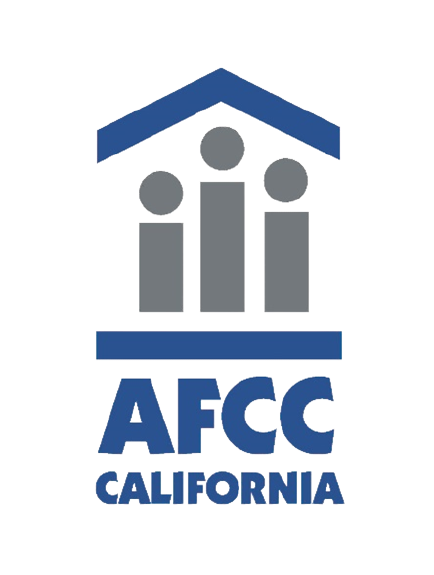Transform your practice.
Learn best practices + practical interventions to work competently and confidently with high-conflict families as a court-involved therapist.
00
DAYS
00
HOURS
00
MINS
00
SECS
36-Hour CIT Specialization Course (Virtual Only)
April 18th - 20th 2024
April 25th - 27th 2024
Participants attend all training dates. Virtual Only. 36 CEUs provided.
Best training I have ever taken.
This training is invaluable for anyone who has, or wants to have, clients who are involved in the court system. It is surprisingly in-depth for only 36-hours, and Dené and Elizabeth are warm, kind, and so willing to share their knowledge. Best training I have EVER taken.
--Kathy Looper, LMFT


Whole, Thorough, Complete Training.
This training significantly transformed my practice and the work that I do. I am walking away feeling more confident, equipped and skilled to do this dynamic work, and to expand it. It touched on all the important areas of our work as Court Involved Therapists. Dené and Elizabeth are not only super skilled but very passionate about this work, which makes for a whole, thorough and complete training."
--Karla Gonzalez, LMFT
Imagine the satisfaction of being able to navigate the complexities of the legal system and provide effective therapy to individuals involved in family law court proceedings. Picture yourself as a trusted resource, making a positive difference in the lives of your clients.
Without the proper training, working with court-involved clients can be overwhelming and challenging. You may feel unsure about the legal processes, lack the necessary skills to address the unique needs of this population, and struggle to make a meaningful impact. But it doesn't have to be that way.
What's Included

Quality Training
Training covers best practices guidelines + current research-informed practices.

Sample Forms
Informed consent documents, release of information, & intake questionnaire all yours to use!

Interventions
Learn effective interventions and therapy structure to support high conflict families.
Here's what we'll cover:
- Review of the 10 AFCC Guidelines for Court-Involved Therapy
- Foundational knowledge, research, and best practices for working regarding working with parent-child contact problems
- Framework for building effective case conceptualizations for complex family systems
- Manage liability and protect your therapeutic process by learning what’s in (and out) of bounds as a court-involved therapist
- Understand family formation and other dynamics for separated LGBTQIA+ Families
- Thorough protocols, screenings, and forms for onboarding new families
- Polyvagal-informed strategies to promote the internalization of safety in the most challenging cases
- Family violence assessments and building protocols for safety
- Specific clinical interventions for co-parenting counseling, individual therapy (children or adults), and family systems therapy
- Considerations for Special Needs and disabled children
- Understanding of the multiple roles involved with high-conflict families
- Best practices for clinical interviews with children
- Strategies to navigate ethical dilemmas related to document requests, collaboration and confidentiality
Meet Your Training Team

Dené Carroll, LCSW
Lead Trainer
Dené Carroll has built her career at the intersection of the law/systems and mental health. For over 12 years she was a social worker for child protective services and now has a private practice specializing in co-parenting counseling, high conflict custody matters, and supporting other professionals doing the same.

Elizabeth Crenshaw, LMFT
Lead Trainer
Elizabeth Crenshaw is a seasoned therapist with over 26 years of experience. She has started community-based programs, supported families experiencing domestic violence, and been the director of several non-profits. She now focuses her clinical work with high conflict families and supporting other professionals in delivering high quality care to complex families.
Featuring Guest Experts

Dr. Lyn Greenberg
Lyn R. Greenberg, Ph.D. is a board-certified licensed psychologist based in Los Angeles, CA. She is an internationally recognized scholar, practitioner, and professional trainer in the field of family forensic psychology. She was also the recipient of the 2024 Joseph Drown Award for Outstanding Services to Children. Dr. Greenberg specializes in services to court-involved children and families, addressing the complex and the individual needs of children and parents, in distressed families, including special needs children, those exposed to abuse, intimate partner violence, or disrupted parent child relationships. She is widely published, served on the AFCC Task Force on court-involved therapy, and on the APA working group on high-conflict families with child involvement. She has been recognized by both AFCC and American Psychological Association for her work.

Dr. Rebecca Bailey
Rebecca Bailey, Ph.D. is a clinical and child forensic psychologist, Director of Transitioning Families, and co-founder of the Polyvagal Equine Institute. Dr. Bailey’s specialities include abduction, complex family systems, animal assisted therapy, Polyvagal Theory, and the resiliency of individuals and families following traumatic life events.

Hon. Kinna Patel Crocker
Judge Kinna Patel Crocker is a judge in Sonoma County, CA and is former family law attorney from Sonoma County, California. In 2023, Judge Patel Crocker was appointed to the bench by Governor Gavin Newsom. In 2010, she began working in Sonoma County and in July 2013 established her own practice, Crocker Law, where she has provided legal services to individuals and couples regarding adoptions, along with marriage and domestic partnership divorce proceedings. The National LGBT Bar Association named Crocker one of the Best LGBT Lawyers Under 40 in 2013. She also received the Unity Bar Community Service Award from the Sacramento Bar Association and the CALI Award for Excellence in Environmental Law.

Traci Carrillo, Esq.
Ms. Carrillo's practice includes all aspects of criminal law, which include representing victims in criminal investigation and criminal court, pursuant to Marsy’s Law. She has specialized experience in handling sexual assault, domestic violence, child abuse, and homicide. Ms. Carrillo handles all aspects of family law, with a specialized focus on domestic violence, restraining orders and child custody. She effectively uses her experience as a prosecutor and trial attorney to achieve excellent results on behalf of her clients.

Catherine Conner, Esq.
Catherine Conner specializes in family law with a primary focus on providing couples with options for resolving their disputes respectfully without going to court. The strategies she employs include private judging, mediation, collaborative practice, and settlement counsel. Conflict resolution and information sharing inform everything Catherine does, including her professional activities. As a past President of the Collaborative Council of the Redwood Empire and a Past President of the International Academy of Collaborative Professionals, she’s committed to increasing the availability and expertise of professionals who employ alternative dispute resolution.

Shawn Bunyard, Esq.
Shawn is a Sonoma County family law attorney and mediator with extensive experience resolving complex family law issues. Shawn is regarded as a creative problem solver who thinks outside the box in order to provide his mediation and litigation clients the best possible options for solutions. In addition to his mediation and litigation experience, Shawn has completed advanced training in trial advocacy, mediation, conflict resolution, and collaborative law. He is also a Parenting Coordinator and currently sits on several Sonoma County Bar Association committees, including the Family Law Steering Committee, Family Law Rules and Best Practices Committee, and the Family Law Education Committee.
Sponsorships

AFCC-CA (Association of Family and Conciliation Courts, California Chapter) is committed to provide continuing, specialized education for judicial officers, attorneys, and mental health professionals working with family court issues, and serving as a model for nation-wide chapters.

We specialize in providing therapeutic support to people of all ages, identities, and dynamics. We also offer professional development to people who work in the human service and mental health fields. The mission is to cultivate your identity and resiliency through bridging your ability to GROW, CREATE, TRUST and LOVE the components that shape you as the KEYSTONE of your life.

The purpose of the Family Law Section is to provide a forum for family law mediators, practitioners and court-involved professionals to keep each other informed and educated related to news, issues, projects, and trainings that relate to the practice of family law in Sonoma County, as well as to effectively discover and implement ways to improve the practice of Family Law within our county.

All attendees will receive a certificate of attendance. Participants who would like continuing Education Credits will receive a Certificate for CE Credit, which will be mailed to participants within two weeks following the last day of the event. Course meets qualifications for 36 hours of Continuing Education Credits for LMFTs, LCSWs, LPCCs, and/or LEPs as required by the California Board of Behavioral Sciences (Provider #128590). The Center for Innovation and Resources, Inc. (CIR) is approved by the California Association of Marriage and Family Therapists to sponsor continuing education for LMFTs, LCSWs, LPCCs, and/or LEPs. CIR maintains responsibility for this program/course and its content. Certificates for CE Credits will be mailed to participants within two weeks following the event.
Dates, Learning Objectives, Cancellation Policy
Training Dates
April 18th 2024: 2 PM to 6:15 PM
April 19th 2024: 9 AM to 5:30 PM
April 20th 2024: 9 AM to 5:30 PM
April 25th 2024: 2 PM to 6:15 PM
April 26th 2024: 9 AM to 5:30 PM
April 27th 2024: 9 AM to 5:30 PM
April 18th, 2024: 2 PM to 6:15 PM
Learning Goal: To develop a comprehensive understanding of the legal and therapeutic landscapes intersecting in court-involved cases.
Learning Objectives:
- Compare the differences between a forensic expert and a court-involved therapist (treating therapist).
- Identify at least one characteristic of a family system that indicates a high level of court involvement.
- Discuss two ways that litigation impacts the therapeutic process.
- Explain the differences between a parenting coordinator, custodial evaluator, and minor’s counsel (guardian ad litem).
Agenda/Schedule:
2 PM to 4 PM: Welcome, Orientation, Lecture, Discussion, Video
4 PM to 4:15 PM: Break
4:15 to 6:15: Lecture, Discussion, Video
April 19th, 2024: 9 AM to 5:30 PM
Learning Goal: Participants will be able to address the practical considerations in the therapeutic practice of working with complex families involved in custody disputes.
Learning Objectives:
- Explain one therapeutic problem that arises when a therapist provides therapeutic treatment while concurrently serving in another role.
- Apply culturally sensitive and affirming therapeutic approaches when working with same-sex couples and families.
- Describe the elements of a fee arrangement specific to high-conflict families.
- Apply important components of an onboarding process with new clients, to include, screening questionnaires, fee agreements, a detailed informed consent, and initial meetings.
- Discuss the risks and benefits of releasing information about the client’s therapeutic process.
- Apply the DAP and SOAP methods to maintain case records/documentation.
- Explain how a client’s report of information, history, or current circumstances may lack balance and comprehensiveness.
- Identify two reasons why it is important to meet with both parents when providing child therapy.
Agenda/Schedule:
9 AM to 10:45 AM: Welcome, Discussion, Video
10:45 AM to 11 AM: Break
11 AM to 12:30 PM: Discussion, Lecture, Case Scenarios
12:30 PM to 1:30 PM: Lunch
1:30 to 3:30: Discussion, Lecture, Case Scenarios
3:30 to 3:45: Break
3:45 to 5:30: Lecture, Discussion, Video, Wrap-Up
April 20th 2024: 9 AM to 5:30 PM
Day 3 Learning Goal: Participants will demonstrate comprehensive understanding and proficiency in legal, clinical, and therapeutic aspects related to parent-child contact problems
Day 3 Learning Objectives
- Analyze a court order with a focus on how to find relevant therapeutic information.
- Describe the problem with the alienation vs. IPV debate.
- Identify at least four factors to consider when conceptualizing a case, according to Saini and Drozd’s research.
- Identify the role of the autonomic nervous system in resist-refuse cases.
- List at least three elements of a treatment plan when working with high-conflict families.
- Discuss the benefits of collaboration with other treating professionals.
- Identify at least three interventions for a family when children resist contact with a parent.
- Explain the appropriateness of the term "evidence-based family therapy" in addressing resist-refuse dynamics within a family system.
Day 3 Agenda/Schedule:
9 AM to 10:45 AM: Welcome, Discussion, Video
10:45 AM to 11 AM: Break
11 AM to 12:30 PM: Discussion, Lecture, Case Scenarios
12:30 PM to 1:30 PM: Lunch
1:30 to 3:30: Discussion, Lecture, Case Scenarios
3:30 to 3:45: Break
3:45 to 5:30: Lecture, Discussion, Video, Wrap-Up
April 25th 2024: 2 PM to 6:15 PM
Day 4 Learning Goal: Participants will explore alternative dispute resolution methods to support separated parents in resolving conflicts without resorting to litigation, thereby expanding their repertoire of non-adversarial approaches to effectively address parental disputes.
Day 4 Learning Objectives:
- Identify common alternative dispute resolution options for high-conflict families, including collaborative practice, private mediation, private judges, recommending and non-recommending mediation.
- Evaluate the benefits of collaboration among professionals from diverse disciplines, including mental health, legal, and social services, in improving outcomes for individuals and children involved in high-conflict divorce cases.
- Describe the four most common parenting plans/custodial schedules and how to apply them to the child(ren)’s developmental stage.
- Explain the co-parenting therapy process, including onboarding, assessment for trauma, and dealing with impasses.
- Describe ways to document and distribute written agreements between co-parents.
Day 4 Agenda/Schedule:
2 PM to 4 PM: Welcome, Orientation, Lecture, Discussion, Video
4 PM to 4:15 PM: Break
4:15 to 6:15: Lecture, Discussion, Video
April 26th 2024: 9 AM to 5:30 PM
Day 5 Learning Goal: Participants will acquire knowledge of therapeutic considerations and interventions essential for serving as a child's therapist, encompassing aspects of child development, understanding special needs, and implementing effective therapeutic approaches tailored to the unique needs of children in a complex family.
Day 5 Learning Objectives:
- Integrate knowledge of best practices, questioning, and child development into their practice to ensure ethical and effective clinical interviewing practices.
- Describe the clinical and ethical issues related to confidentiality when you are providing child therapy.
- Explain scenarios when a child therapist would only interface with one parent.
- Identify the different developmental stages of children and how that relates to the divorce/separation process.
- Identify at least three therapeutic interventions for children in divorced families
- Identify the key components of a child custody evaluation.
- Compare the eight risk-protection factors that comprise the Pickar-Kaufman Risk Assessment Model for Special Needs Children in Child Custody Decision-Making
Day 5 Agenda/Schedule:
9 AM to 10:45 AM: Welcome, Discussion, Video
10:45 AM to 11 AM: Break
11 AM to 12:30 PM: Discussion, Lecture, Case Scenarios
12:30 PM to 1:30 PM: Lunch
1:30 to 3:30: Discussion, Lecture, Case Scenarios
3:30 to 3:45: Break
3:45 to 5:30: Lecture, Discussion, Video, Wrap-Up
April 27th, 2024: 9 AM to 5:30 PM
Day 6 Learning Goal: Participants will develop a comprehensive understanding of the distinct responsibilities of adult therapists, navigate common ethical dilemmas, learn ways to navigate complex treatment teams, establish essential therapeutic boundaries, and acquire skills to assess and address concerns pertaining to family violence, thereby enhancing their competence and efficacy in providing therapeutic support within adult client populations.
Day 6 Learning Objectives:
- Identify your own countertransference issues related to divorce or separation.
- Analyze the unique role of the court-involved individual adult therapist, including the multiple aspects of therapist, advocate, coach, and member of the family therapeutic team
- Design an arrival and departure protocol for IPV parents with Protective Orders.
- Utilize the SAFeR assessment and screening tools for IVP.
- Identify and analyze common ethical challenges that arise when working with high-conflict divorcing families, including issues related to confidentiality, neutrality, and boundary setting.
- Identify factors that should be considered when a therapist is asked to write a letter or offer their professional opinion.
- Analyze strategies for navigating the complexities of collaboration among therapists within a fractured team, considering communication, conflict resolution, and shared therapeutic goals.
Day 6 Agenda/Schedule:
9 AM to 10:45 AM: Welcome, Discussion, Video
10:45 AM to 11 AM: Break
11 AM to 12:30 PM: Discussion, Lecture, Case Scenarios
12:30 PM to 1:30 PM: Lunch
1:30 to 3:30: Discussion, Lecture, Case Scenarios
3:30 to 3:45: Break
3:45 to 5:30: Lecture, Discussion, Video, Wrap-Up
Additional Information:
Individuals with disabilities who require accommodations to participate in this training should contact Dené Carroll at 707-297-3088 or [email protected] or Elizabeth Crenshaw at [email protected].
All attendees will receive a certificate of attendance. Participants who would like continuing Education Credits will receive a Certificate for CE Credit, which will be mailed to participants within two weeks following the last day of the event. Course meets qualifications for 36 hours of Continuing Education Credits for LMFTs, LCSWs, LPCCs, and/or LEPs as required by the California Board of Behavioral Sciences (Provider #128590). The Center for Innovation and Resources, Inc. (CIR) is approved by the California Association of Marriage and Family Therapists to sponsor continuing education for LMFTs, LCSWs, LPCCs, and/or LEPs. CIR maintains responsibility for this program/course and its content. Certificates for CE Credits will be mailed to participants within two weeks following the event.
Refunds & Cancellations: The fee includes all training materials, online access to handouts, and CEUs. All sales are final. All fees are non-refundable and there are no exceptions to this policy. No refunds or credits will be issued.
This project has no outside funding and is a private venture between Dené Carroll and Elizabeth Crenshaw.
For more information, questions, or grievances, please contact Dené Carroll at [email protected] or Elizabeth Crenshaw at [email protected].


